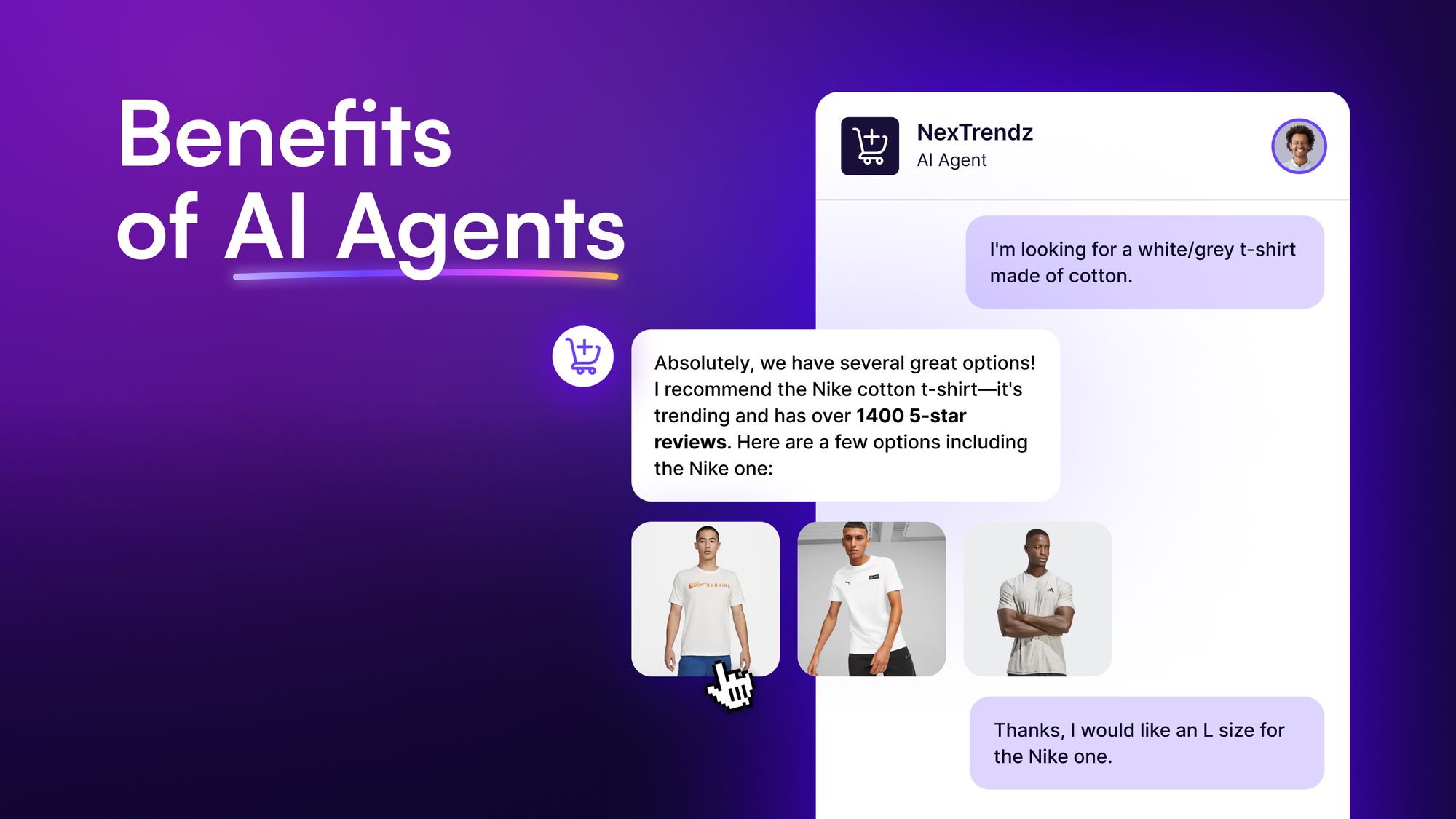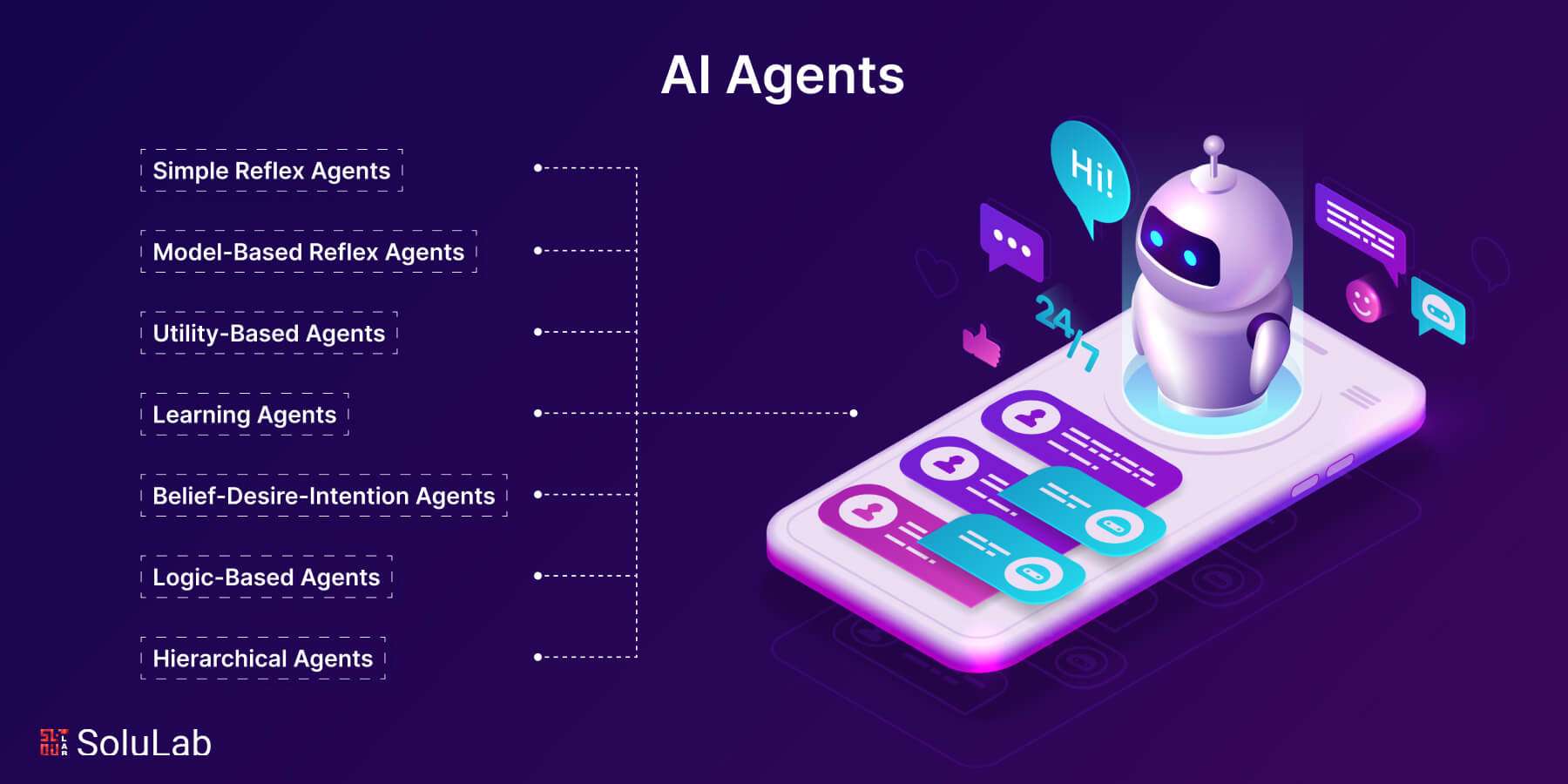The Role of the AI Agents Marketplace in Smarter Decision-Making
Unlocking the Full Prospective of the AI Agents Marketplace: What You Need to Know
The AI agents marketplace presents considerable chances for organizations intending to enhance efficiency and automation. Nevertheless, steering with this landscape calls for a critical method. Firms must evaluate their certain demands and determine proper AI remedies. As companies start this journey, they face crucial decisions that can shape their future. What factors should they prioritize to guarantee successful combination and make best use of advantages? Understanding these components is essential for making informed choices.
Understanding the AI Agents Marketplace Landscape
As the demand for AI options remains to grow, the landscape of the AI agents marketplace has developed into a dynamic environment. This marketplace encompasses a diverse array of product or services made to enhance automation and performance throughout different markets. Secret players include developed technology companies, start-ups, and open-source neighborhoods, each contributing distinct developments and performances.
The competitive nature of this setting cultivates rapid advancements, leading to a range of AI agents tailored to specific tasks, from customer solution chatbots to complicated decision-making systems. As companies increasingly recognize the worth of AI, they seek services that use scalability and integration with existing technologies.
Governing factors to consider and honest effects additionally shape the marketplace, engaging designers to focus on transparency and accountability. Generally, the AI agents marketplace remains to increase, driven by technical development and an expanding understanding of the transformative potential of man-made intelligence.
Secret Applications of AI Agents Throughout Industries
AI agents are transforming numerous industries by automating tasks that improve operational performance and decision-making. In the healthcare market, AI agents assist in diagnostics and client monitoring, improving procedures and boosting outcomes. In finance, they assess market patterns and promote trading, enabling quicker and much more enlightened financial investment choices. Retail industries use AI agents for inventory management and customized consumer experiences, optimizing sales methods and supply turnover.
Manufacturing additionally benefits, with AI agents checking equipment and predicting maintenance needs to minimize downtime. In marketing, they examine customer behavior and automate targeted projects, increasing involvement and conversion prices. Furthermore, AI agents play a necessary duty in logistics, optimizing supply chains and minimizing costs with wise transmitting and need projecting. As organizations across these sectors take on AI agents, they disclose brand-new levels of productivity and innovation, placing themselves for future development and competitive benefit.
Recognizing the Right AI Agents for Your Organization Requirements
Exactly how can companies determine which AI agents straighten ideal with their certain needs? To make enlightened decisions, companies must begin by reviewing their functional goals and identifying the specific obstacles they encounter. This includes specifying the essential functions that AI agents will certainly support, such as client service, information evaluation, or process automation.
Once the needs are clear, business can check out the marketplace for AI agents tailored to those features. They must think about factors such as the representative's capabilities, assimilation simplicity with existing systems, and flexibility to different workflows. Furthermore, reviewing instance studies or endorsements from similar markets can provide understandings into successful applications.
Seeking advice from with technical professionals or conducting pilot tests can better refine selections, ensuring that the chosen AI agents not just fulfill immediate operational requirements however additionally straighten with lasting strategic objectives. This organized approach enhances the probability of choosing one of the most reliable AI remedies.
Evaluating AI Agents: Metrics and Performance Indicators
Assessing the performance of AI agents needs a clear collection of metrics and efficiency signs customized to the details objectives of the company (AI Agents Marketplace). Secret metrics often consist of precision, which determines the representative's capacity to supply right results, and feedback time, mirroring the rate at which the agent processes requests. Additionally, individual satisfaction scores offer understandings right into exactly how well the agent meets user assumptions
Involvement metrics, such as regularity of use and retention rates, can show the agent's efficiency in preserving customer passion. Cost-effectiveness is one more crucial efficiency sign, figuring out whether the advantages gained recommended you read from the AI representative justify its functional prices.
Flexibility and discovering rates are substantial, as they determine the representative's capability to enhance over time. Together, these metrics give an extensive framework for evaluating AI agents, making it possible for companies to make educated decisions concerning their combination and optimization.

Ideal Practices for Incorporating AI Agents Into Your Operations
Effective integration of AI agents into operations demands a tactical method that lines up with the company's goals. Companies must examine their certain demands and identify the locations where AI can add the most worth. This calls for a thorough analysis of existing workflows and procedures to identify inefficiencies.
Next off, it is crucial to select the appropriate AI agents customized to these requirements, guaranteeing compatibility with existing systems. Training staff members to function alongside AI agents improves acceptance and fosters a joint environment.
In addition, organizations need to establish clear communication networks to assist in feedback and changes, guaranteeing constant improvement of AI functionalities.
Ultimately, checking performance metrics post-implementation permits ongoing analysis, helping companies adjust and enhance their AI strategies over time. By adhering to these best practices, organizations can efficiently leverage AI agents to improve performance and accomplish their tactical objectives.
Browsing Moral Factors To Consider in AI Adoption
What honest issues emerge when companies adopt AI technologies? The application of AI agents provides different obstacles, particularly concerning accountability, openness, and fairness. Organizations must come to grips with guaranteeing that their AI systems do not bolster biases, as algorithms educated on historic information can enhance existing inequalities. In addition, go to the website the opacity of some AI decision-making procedures can bring about an absence of liability, making it hard to recognize duty in case of mistakes or adverse end results.
Privacy worries likewise emerge, as AI systems commonly need substantial information collection, questioning regarding permission and data security. Furthermore, the possible variation of jobs due to automation presents moral factors to consider bordering labor force influence and financial inequality. Organizations has to navigate these complexities carefully, cultivating an honest framework that focuses on civils rights and societal well-being while making the most of the advantages of AI innovations. By dealing with these moral factors to consider, organizations can guarantee responsible AI fostering.
Future Patterns: What to Expect in the AI Agents Marketplace
The AI agents marketplace is poised for significant advancement, noted by enhanced automation abilities that enhance jobs across numerous sectors. Together with this, enhanced customization functions are anticipated to tailor customer experiences better, satisfying private choices and requirements. These fads suggest a future where AI agents end up being indispensable tools for both organizations and consumers.
Boosted Automation Capabilities
Emerging trends in the AI agents marketplace signal a considerable jump in automation capabilities, improving sectors and workflows. As AI agents end up being extra sophisticated, they are significantly click now able to manage complex jobs with minimal human treatment. This development permits companies to streamline procedures, minimize prices, and improve performance. Fields such as logistics and manufacturing are leveraging AI agents to automate supply management and predictive upkeep, leading to optimized efficiency. Additionally, the integration of artificial intelligence formulas equips these agents to gain from previous information, enhancing their effectiveness in time. As automation ends up being a lot more common, services can anticipate transformative modifications in exactly how they run, leading the way for innovative remedies and new competitive benefits in the marketplace.

Enhanced Customization Functions
Just how will improved personalization features improve individual experiences in the AI agents marketplace? These developments are set to reinvent exactly how individuals connect with AI agents, customizing services to specific preferences and needs. By examining customer information and habits, AI agents will provide suggestions and remedies that reverberate even more deeply with each user. This change in the direction of hyper-personalization will certainly not just boost user fulfillment but additionally foster higher commitment to certain systems. On top of that, the assimilation of feedback systems will certainly enable AI agents to adapt in real-time, making sure that the individual experience consistently evolves. As these features become basic, the marketplace will likely see increased interaction and retention, driving technology and competitors among AI developers to use the most tailored experiences feasible.
Often Asked Inquiries

Just how Do I Select the Right AI Agent Vendor?
Picking the ideal AI representative supplier entails evaluating their experience, reliability, and client comments. Evaluating the innovation's compatibility with existing systems and understanding rates models are vital actions in making a notified choice.
What Are the Costs Associated With Releasing AI Agents?
The costs connected with releasing AI agents consist of licensing charges, infrastructure expenses, upkeep, training, and possible combination expenses. Organizations must evaluate these variables to properly allocate application and ensure a successful deployment approach.
Can AI Agents Be Personalized for Particular Business Demands?
AI agents can undoubtedly be customized to fulfill certain company demands, enabling organizations to customize performances and efficiency - AI Agents Marketplace. This flexibility enhances functional performance, addresses one-of-a-kind obstacles, and cultivates advancement in numerous markets and markets
Exactly how Do I Make Certain Data Privacy With AI Agents?
To assure data personal privacy with AI agents, organizations need to execute durable encryption, develop clear data managing plans, conduct normal audits, and use anonymization strategies to safeguard delicate info throughout handling and storage.
What Assistance Alternatives Are Available After AI Representative Execution?
After executing AI agents, companies generally have accessibility to numerous support choices, consisting of technological assistance, individual training, and normal updates. These sources guarantee smooth operation and assistance resolve any difficulties that might arise post-implementation.